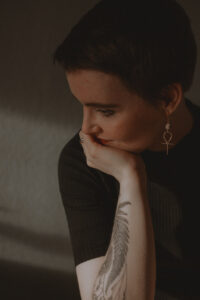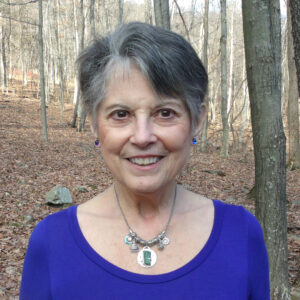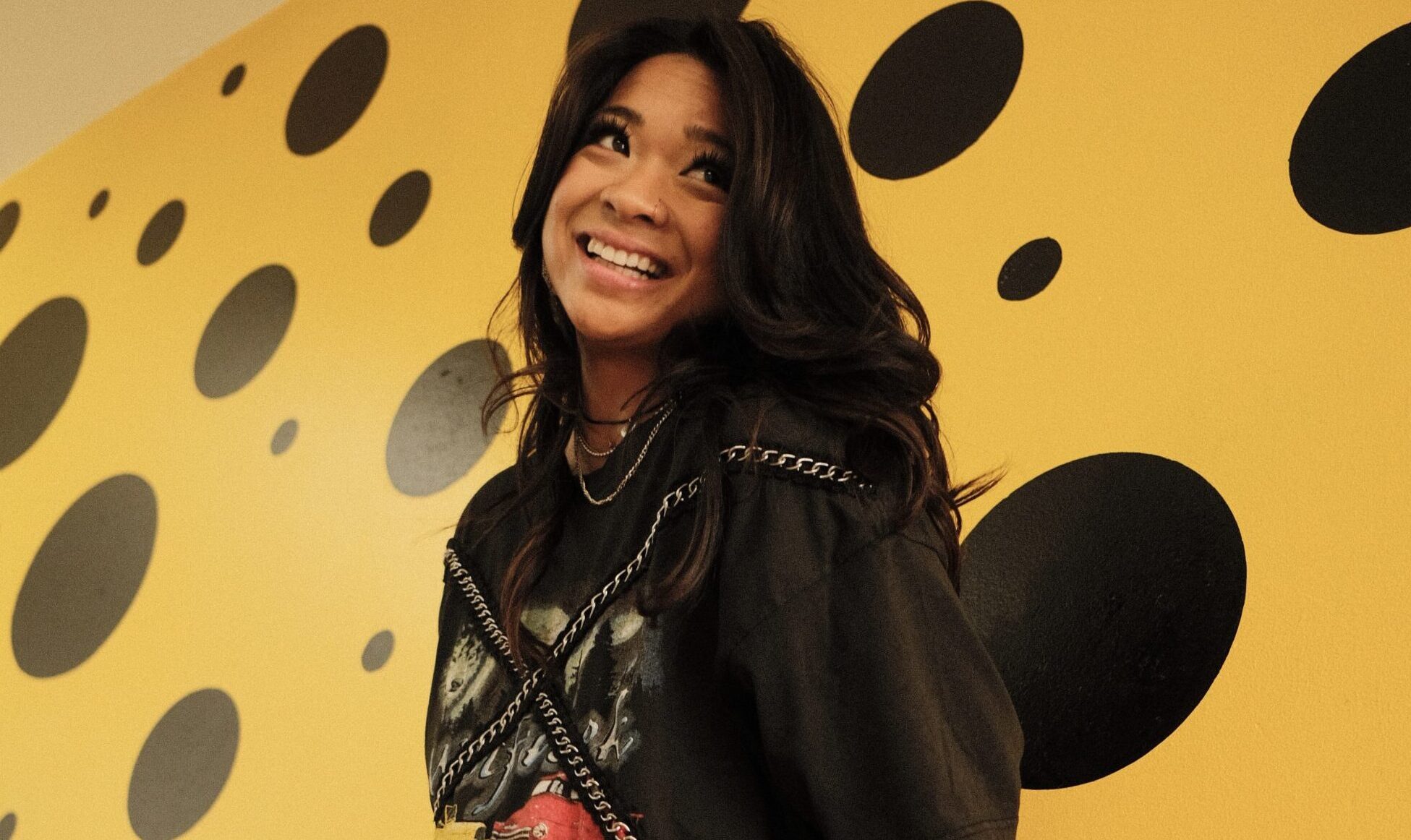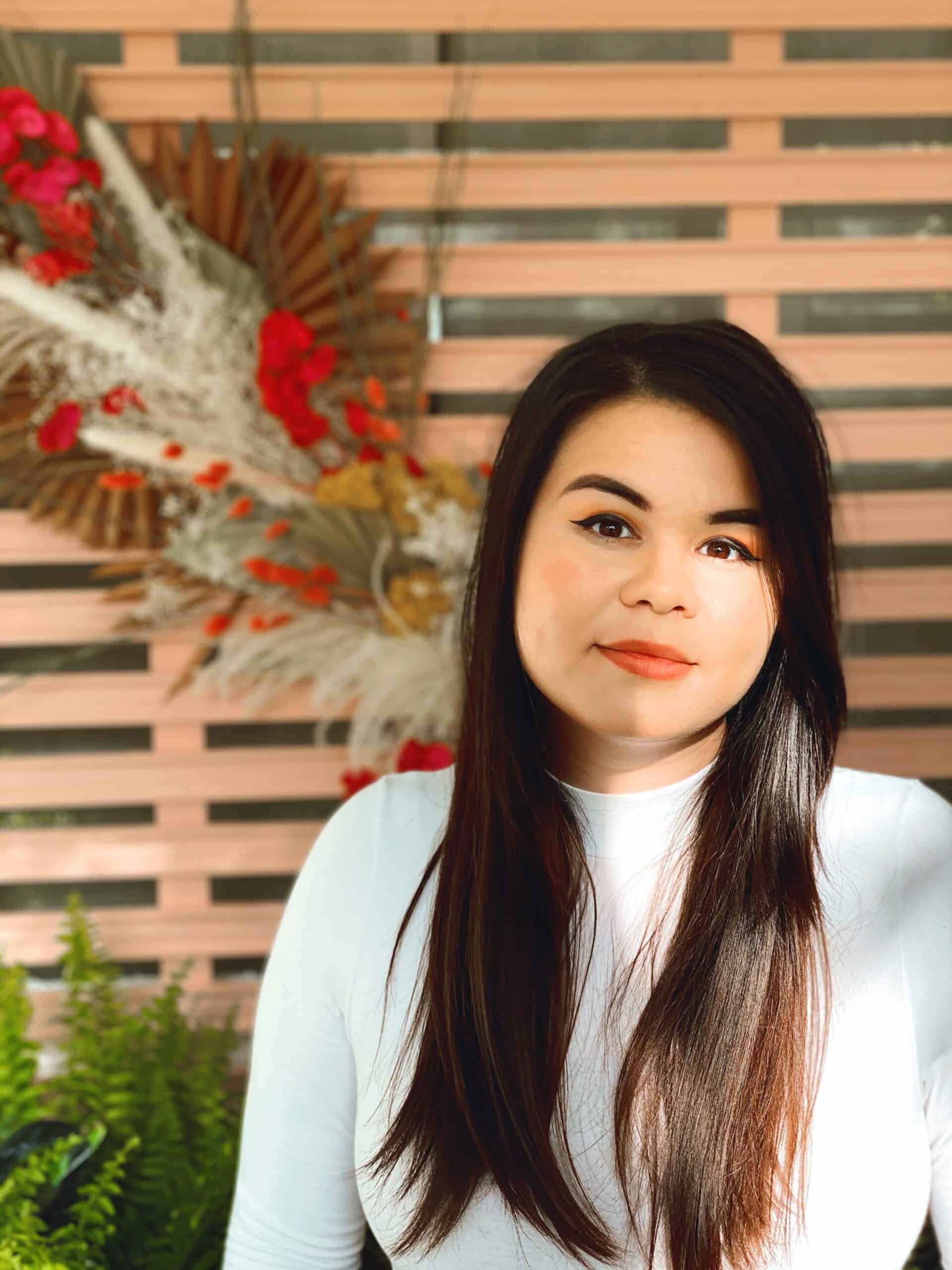Meet Michaela Godding, a writer and creative whose journey into the world of words began with a simple gift of books. Growing up in a small town, Michaela found solace and adventure within the pages of stories, sparking a lifelong passion for writing and poetry. Her debut chapbook, “dwelling,” delves deep into themes of identity, trauma, and self-discovery, weaving together memoir and metaphor in a vulnerable exploration of personal experiences. As a high school creative writing teacher and vocal coach, Michaela balances her various roles in education and the arts, believing that all forms of creativity intersect and influence each other. She sees writing and art as powerful tools for addressing personal traumas and fostering healing, both for herself and for others. Michaela’s upcoming projects include aspirations for a full-length collection combining poetry and personal essays. You can connect with her and support her work by purchasing her chapbook and following her on Instagram @god.ding
Can you share with us your personal journey as a writer and creative? What initially sparked your interest in writing and poetry?
The biggest thing that initially drew me to creative writing was loneliness. As a young girl, I would spend days upon days in my room without a friend or sibling to bounce ideas off of. My isolation was partially because of my family’s bad reputation in a small town, but it was also because I only lived with my dad for a large chunk of my childhood and any activities that we did together were entirely on his terms. Knowing our family’s situation, a kid in my 5th grade class’s mom dropped me off a box of books that her son had finished reading. Within a week I had read almost all of them, solely out of excitement for having new worlds and stories to read under my covers. On days when I would watch the sun rise and set out of my bedroom window, my daydreams of these far away worlds could become so big that they almost felt real. I realized that no matter where I was, as long as I had a pen and paper or a book, I could go anywhere else in a matter of seconds. The instant escape, safety and control that words on paper give me started there.

Your debut chapbook, “dwelling,” delves into themes of identity, trauma, and self-discovery. Could you tell us about the journey of creating this collection? What inspired you to explore these particular themes?
My chapbook, “dwelling,” (published by Bottlecap Press) is a vulnerable collection of poems that I have worked on all the way from my third year of high school to now. The poems were very carefully ordered to lean into each other even though at times they were written years apart. Piecing together those different parts of myself for this chapbook is a perfect echo to how we as humans tend to process trauma: by revisiting and finding meaning in specific moments or happenings in our lives. All of the poems in “dwelling” weave in and out of memoir and metaphor, often purposefully blurring which is which throughout in an attempt to articulate the non-tangible aspects of trauma that linger from childhood and how they have led to who I am today, along with how they impacted the given and not given identities that I perform through as an adult. The double meaning of the word “dwelling”, one being meaning dwelling as in a place of residence or house, the other being “dwelling” as in to ponder something negatively, both served as the commonality and compass to every poem in the collection.
As a high school creative writing teacher and private vocal coach, how do you balance your various roles in education and the arts? How do they intersect and influence each other? / What challenges have you faced along your journey as a writer and creative professional, and how have you overcome them?
In my opinion, all art is the same. We all create to capture something, and to then perhaps share that capturing. The best way that I can set my students up to create, regardless of the medium of their creativity, is through proving to them that their ideas and abilities are worthy of attention and investment. I take this sentiment, along with the idea that we all have something unique to offer, into every teaching position that I take.
Being a practicing artist also means wearing a lot of hats. I am a vocal instructor at two different music schools currently at three different locations, and am also a “part-time” creative writing teacher for high school seniors at a private high school in Maryland. What a lot of people don’t understand is that to be a good teacher you have to constantly do work off the clock. In my supposed free moments you can find me grading, lesson planning, giving feedback, finding materials for my students to work with (especially my vocal students since their lessons are of course each individualized), reaching out to parents, finding and sponsoring competitions, and even just keeping an eye out for anything that could motivate or fit the artists I’m working with.
Stepping into the role of mentor for so many often takes away from my own heart projects, such as the band that I’m putting together and trying to gig with, or the online magazine that I am a volunteer poetry submission reader for. Unfortunately, pouring so much of my energy into other people leaves me with less to pour into ME, but that just means that I have to make conscious time to relax and to check in with myself: “What does MY heart/art/mental health need today?” It also means that when there isn’t time to decompress, there are still jobs to get done, and that I need to do them with a smile.
How do you see the role of creativity and writing in addressing personal traumas and fostering healing, both for yourself and for others?
Since I’m a writer, a lot of people usually ask how I begin to put my ideas onto paper. Sometimes I wish I could say that I bust out my quill pen or just turn on some lofi music, but often I write because I have to. A thought of mine will become so large that the only way that I can see all of it at once is to step back from it. Because of this need that I have, a lot of my writing happens as an act of me trying to make something tangible out of intangible experiences or feelings.
My constant need to write things out, along with the constant relief that encapsulating my traumas artistically brings me, inspired a year long thesis that I did at Hampshire College centered around how the creative arts can be used to help women process traumatic events. It amazed me in all of my research on trauma therapies and studies how no therapeutic practices, creative ones included, ever seemed to be catered to a specific identity. Since gender is performed (as in, I perform as a woman and so therefore I am one), I experimented with how performed identity can be tapped into, and healed, by overlapping it with performance art. I created a collection of creative exercises all catered to specific types of triggers and did them all myself to tackle my own traumas. Then, I took the results and showcased them for a live audience with the rawness and the purpose of the performance known by the viewers going in. Sharing this work out loud, along with the months of focusing on my healing through art forms both familiar to me and not, completely changed my life. Creating through my traumas and performing what I created made me feel the most in control and autonomous that I have ever felt. It amazed me that solely by engaging with certain prompts catered to me that my entire attitude and livelihood could change.
This knowing has motivated me to someday (hopefully) open a practice of my own with the sole purpose of implementing the same exercises to help women process their own traumatic experiences. The practice would also always have a counselor on site to aid in any moments where participants may feel emotionally stuck. Then, at the end of the process, all involved will showcase their artistic works created through the process and be compensated for their work. That way, women of all walks of life can participate since money is not a factor, and the work can simultaneously be shown to an audience with the artists’ full knowledge and consent instead of being shared exploitatively.
Last year I proposed that exact project to be done at and with a gender-violence prevention center in India (which is something that I deeply researched as the right place to attempt to do this work) called Durga. With Durga as a sponsor, my proposal to do the project earned me a spot as a Fulbright Scholarship Semi-Finalist. Although I was not ultimately selected, the American government approving the project the first time I introduced it has given me a lot of hope, and I am looking for new ways to make the practice a reality, possibly in America this time, or even possibly in a women’s prison. There are so many maybes because I am trying to create something that doesn’t exist yet. So with that being said, if anyone reading this has any idea of how I could make this happen, please, reach out and let’s connect! I hope to still make it happen in the future.
What advice would you give to aspiring writers and creatives who are navigating their own journeys in the literary and artistic world?
I would say that the best thing that you can do to honor your work and your growth as an artist is to PUT YOURSELF OUT THERE OVER AND OVER AGAIN. I think of that saying, “you miss 100% of the shots you don’t take,” every time I send off a submission to a press or publisher that I have never sent work to. The truth is that even if you have done extensive work to improve your craft/technique, have received a bottomless amount of feedback and applied it, or have created what seems like the best piece you have ever made, it doesn’t change the fact that art is and will always be subjective. Trust that your work will be understood by who is meant to understand it, and trust yourself as an artist to create good art. The rest will come as long as you don’t give up on your own ideas.
Can you share any upcoming projects or aspirations you have in your writing and creative career?
Now that I have my debut chapbook published, I would love to release a full length collection. I am currently toying with writing a book that is half poetry and half personal essay. I have always been intrigued by how different genres of writing can strengthen each other and I feel that memoir writing is possible through both personal essays and poems, and that each offer insights into a person that the other can’t offer: for instance that personal essays leave no room for questioning the literalness of what the narrator is saying, whereas the figurative language of poetry can convey energies, tones, multilayered concepts, and representations in a way that literal writing at times cannot.
Lastly, how can people connect with you and support your work, whether it’s through your chapbook, teaching, or other creative endeavors?
The best way to support me is to buy my chapbook! Read it! Maybe even buy another copy of it and leave it in a random spot in a random city for another random reader! Tell me what it made you think of or feel! Share it! And tell your friends too! Also, follow me on instagram @god.ding, where I have a linktree in my bio that can connect you to all of my published writings, interviews and collectives.







